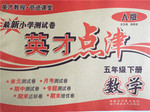题目内容
“Sorry, sorry…”, he whispered, _______ talking to himself.
A. while B. even if C. as if D. when
C
考查连词的用法。as if表示“好像”。语意:他低声地说,“对不起,对不起……”,好像在自言自语。只有C项符合题意。

 英才点津系列答案
英才点津系列答案 红果子三级测试卷系列答案
红果子三级测试卷系列答案The teacher was leaving the village, and everybody seemed sorry. The miller lent him the small cart and horse to carry his goods to Christminster, the city of his destination. Such a vehicle proved of quite enough size of the teacher’s belongings, for his only article, in addition to the packing-case of books, was a piano that he had bought when he thought of learning instrumental music. But the eagerness having faded, he had never acquired the skill of playing, and the purchased article had been a permanent trouble to him.
The headmaster had gone away for the day, being a man who disliked the sight of changes. He didn’t mean to return till the evening, when the new teacher would have arrived, and everything would be smooth again.
The blacksmith, the carpenter and the teacher were standing in confused attitudes in the sitting room before the instrument. The teacher had remarked that even if he got it into the cart he should not know what to do with it on his arrival at Christminster, since he was only going into a temporary place just at first.
A little boy of eleven, who had been assisting in the packing, joined the group of men, and said, “Aunt has got a fuel-house, and it could be put there, perhaps, till you’ve found a place to settle in, sir.”
“Good idea,” said the blacksmith. The smith and the carpenter started to see about possibility of the suggested shelter, and the boy and the teacher were left standing alone.
“Sorry I am going, Jude?” asked the latter kindly.
Tears rose into the boy’s eyes. He admitted that he was sorry.
“So am I,” said the teacher. He continued, “Well---don’t speak of this everywhere. You know what a university is, and a university degree? It is the necessary hallmark(标志) of a man who want to do anything in teaching. My plan, or dream, is to be a university graduate. By going to Christminster, I shall be at headquarters(总部), so to speak, and if my plan is practical at all, I consider that being on the spot will afford me a better chance.”
The smith and his companion returned. Old Miss Fawly’s fuel-house was big enough, and she seemed willing to give the instrument standing-room there. So it was left in the school till the evening, when more hands would be available for removing it; and the teacher gave a final glance round.
【小题1】The teacher purchased the instrument to ___________________.
| A.teach his students instrumental music |
| B.better equip the village school |
| C.learn to play it himself |
| D.let students appreciate elegant art of music |
| A.was not getting on well with the headmaster |
| B.had lived a rather simple life in the village |
| C.was likely to continue to practise playing the piano |
| D.was tired of teaching |
| A.Because he was admitted to a university there. |
| B.Because he was offered a temporary job with better pay there. |
| C.Because he preferred the life in a big city to that in a village. |
| D.Because he thought he had better chance to attend university there. |
| A.The teacher was torn between the eagerness to go to the city and his love for the village. |
| B.The teacher was going into a temporary place in Christminster at first. |
| C.The teacher moved his piano into the fuel-house with the help of some other people. |
| D.The teacher had so much belongings that he had to borrow a cart. |
| A.devotion | B.admiration | C.inspiration | D.ambition |
I can still remember the first day when I met my best friend. She had just moved into the neighborhood and her grandmother brought her down to meet me. I hid behind my mother and she hid behind her grandmother, scared to look at each other.
Soon, we lost the shyness and started playing with each other, bike riding to each other’s house and having sleepovers. In 7th grade she was going through family problems. However, every summer we would always sit at each other’s house and watch movies on TV and talk about all the boys we liked.
It was last year when I noticed the problem. She suffered from clinical depression(抑郁症), and had to go to a hospital during the day. I was very sorry for her at first. But with the late night calls, and meeting each other halfway up the street at midnight, we still stayed in touch. I wanted to be there for her since her new best friend left her, and I knew I still cared about her like a sister.
Yesterday she came to me and said this. “I never knew what a best friend was until you were the only person that would stop me from cutting myself; the only person that ever made me feel better about myself and my problems. You didn’t know this but I was trying to kill myself that very night you called me and I was crying. I owe you so much, and you didn’t even know you were helping me. ”
We both cried. And I guess a kind of lesson from my life so far is to never give up your friends. Even if they aren’t as cool as others, or people think they are crazy, they need someone there. If you leave them, you will only be very sorry. So if friends need you, and you care for them, you should be always there for them.
【小题1】Why did the two girls hide behind their family members when they first met?
| A.Because they were playing a game. |
| B.Because they didn’t like each other. |
| C.Because they quarreled before. |
| D.Because they were both shy. |
| A.She would have lost her new best friend. |
| B.She would have killed herself that night. |
| C.She would have run away from her family. |
| D.She would have stayed in hospital for a long time. |
| A.Always care for your friends. |
| B.Don’t care about others’ opinions. |
| C.Never owe your friends too much. |
| D.Try to be as cool as others. |
The teacher was leaving the village, and everybody seemed sorry. The miller at Cresscombe lent him the small cart and horse to carry his goods to Christminster, the city of his destination, such a vehicle proving of quite enough size for the teacher’s belongings. For his only article, in addition to the packing-case of books, was a piano that he had bought when he thought of learning instrumental music. But the eagerness having faded, he had never acquired any skill in playing, and the purchased article had been a permanent trouble to him.
The headmaster had gone away for the day, being a man who disliked the sight of changes. He did not mean to return till the evening, when the new teacher would have arrived, and everything would be smooth again.
The blacksmith, the farm bailiff and the teacher were standing in confused attitudes in the sitting room before the instrument. The teacher had remarked that even if he got it into the cart he should not know what to do with it on his arrival at Christminster, since he was only going into a temporary place just at first.
A little boy of eleven, who had been assisting in the packing, joined the group of men, and said, “Aunt has got a fuel-house, and it could be put there, perhaps, till you’ve found a place to settle in, sir.”
“Good idea,” said the blacksmith.
The smith and the bailiff started to see about the possibility of the suggested shelter, and the boy and the teacher were left standing alone.
“Sorry I am going, Jude.” said the latter gently.
Tears rose into the boy’s eyes. He admitted that he was sorry.
“So am I,” said Mr. Phillotson.
“Why do you go, sir?” asked the boy.
“Well ----- don’t speak of this everywhere. You know what a university is, and a university degree? It is the necessary hallmark of a man who wants to do anything in teaching. My scheme, or dream, is to be a university graduate. By going to live at Christminster, I shall be at headquarters, so to speak, and if my scheme is practicable at all, I consider that being on the spot will afford me a better chance.”
The smith and his companion returned. Old Miss Fawley’s fuel-house was practicable; and she seemed willing to give the instrument standing-room there. So it was left in the school till the evening, when more hands would be available for removing it; and the teacher gave a final glance round.
At nine o’clock Mr. Phillotson mounted beside his box of books, and waved his friends good-bye.
1.It can be inferred that the teacher _______.
|
A.was not getting on well with the headmaster |
|
B.had lived a rather simple life in the village |
|
C.was likely to continue to practice playing the piano |
|
D.would get a rise in the city on arriving there |
2.The motivation of the teacher’s moving lay in his _________.
|
A.ambition |
B.devotion |
C.admiration |
D.inspiration |
3.The boy named Jude may be described as _________.
|
A.polite, generous and cheerful |
B.active, modest and friendly |
|
C.kind, bright and helpful |
D.calm, confident and humorous |
4.From the passage, we could get a general idea of the teacher’s ______.
|
A.love for music and his dislike for musical instruments |
|
B.hard work in the village and his strong interest in city life |
|
C.friendship with some villagers and also conflicts with others |
|
D.eagerness to go to the city and his love for the village |
5.Which person does the underlined “his companion” refer to?
|
A.Mr. Phillotson |
B.Miss Fawley |
C.The bailiff |
D.The headmaster |